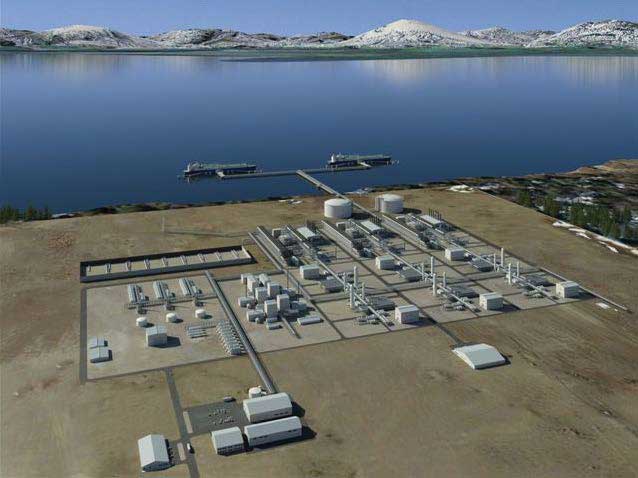Bid to Pause ConocoPhillips' Alaska Willow Project Fails
(Reuters) — A federal judge on Monday rejected a bid by environmentalists to temporarily suspend the U.S. government’s approval of ConocoPhillips' multibillion-dollar oil drilling project in Alaska’s Arctic.
U.S. District Judge Sharon Gleason in Anchorage had been asked by environmental groups and a Native American community in two lawsuits filed last month for an order blocking construction on the $7 billion Willow project over concerns it would exacerbate climate change and damage pristine wildlife habitat.
Gleason said an injunction was inappropriate because the groups wouldn't be irreparably harmed by the construction that ConocoPhillips has scheduled for this month, which includes building roads and a gravel mine.
The judge didn't address whether the lawsuits appeared likely to succeed at later stages in the proceedings.
A ConocoPhillips spokesperson said the decision will allow the company to begin construction activities "immediately," and said the project will provide "meaningful opportunities" for the state, its Native American communities and for domestic U.S. energy production.
Bridget Psarianos, an attorney challenging the approval, called the planned construction schedule "aggressive" and said the judge's decision is "heartbreaking."
"We will do everything we can to protect the region while the merits of our case get heard," Psarianos said in a statement.
The U.S. Interior Department declined to comment.
The Biden administration approved the project on March 13, drawing cheers from Alaskan officials and the oil industry but criticism from environmental advocates who said the development undermines President Joe Biden's highly publicized efforts to fight climate change and shift to cleaner sources of energy.
RELATED: Biden Administration Approves ConocoPhillips' $7 Billion Willow Project in Alaska
The approvals for the project in northern Alaska give ConocoPhillips permission to construct three drill pads, 25.8 miles of gravel roads, an air strip and hundreds of miles of ice roads. The 30-year project would produce up to 180,000 barrels of oil per day at its peak, according to the company.
In two lawsuits filed within days of the approval, environmental groups and Native American tribes said the government did not adequately consider less damaging alternatives and had wrongly assumed it did not have the power to stop ConocoPhillips from developing oil and gas resources on leases it owns.
ConocoPhillips has held the leases in the National Petroleum Reserve-Alaska since 1999. Former President Donald Trump's administration first approved the project in 2020. But Gleason blocked it a year later, finding its environmental impact analysis was flawed.
The cases are Sovereign Inupiat for Living Arctic v. Bureau of Land Management and Center for Biological Diversity v. Bureau of Land Management, U.S. District Court for the District of Alaska, Nos. 3:23-cv-00058 and 3:23-cv-00061.
Related News
Related News

- Keystone Oil Pipeline Resumes Operations After Temporary Shutdown
- Biden Administration Buys Oil for Emergency Reserve Above Target Price
- Freeport LNG Plant Runs Near Zero Consumption for Fifth Day
- Enbridge to Invest $500 Million in Pipeline Assets, Including Expansion of 850-Mile Gray Oak Pipeline
- Williams Delays Louisiana Pipeline Project Amid Dispute with Competitor Energy Transfer
- Evacuation Technologies to Reduce Methane Releases During Pigging
- Editor’s Notebook: Nord Stream’s $20 Billion Question
- Enbridge Receives Approval to Begin Service on Louisiana Venice Gas Pipeline Project
- Russian LNG Unfazed By U.S. Sanctions
- Biden Administration Buys Oil for Emergency Reserve Above Target Price





Comments